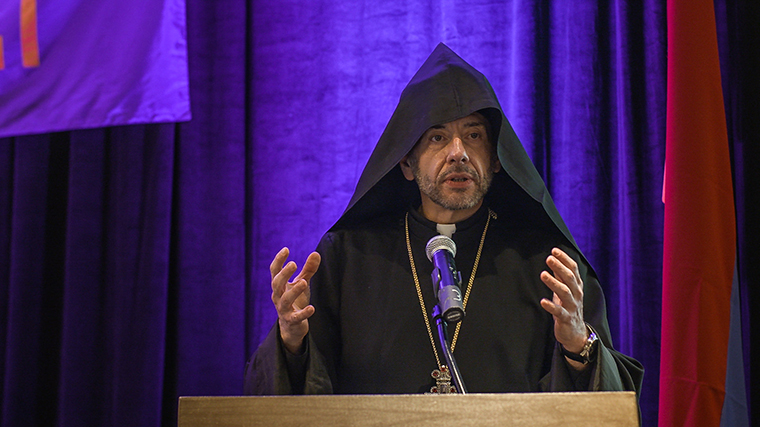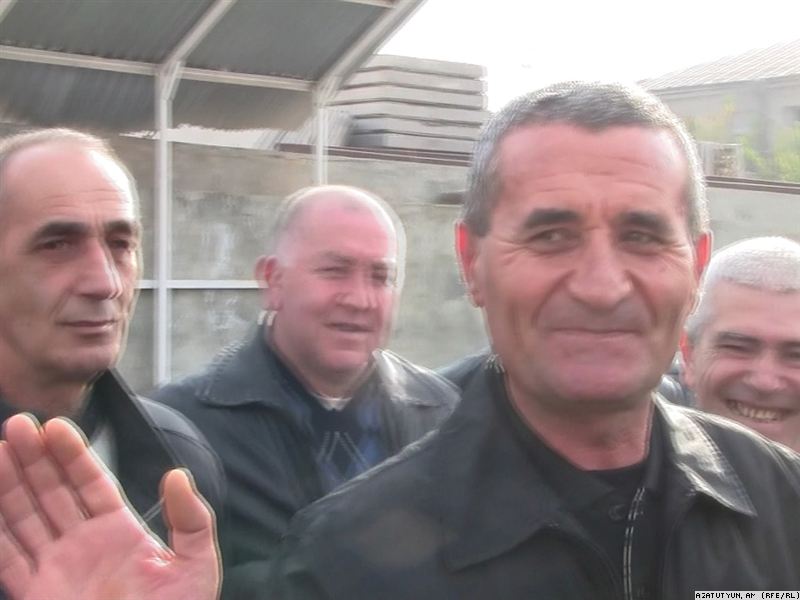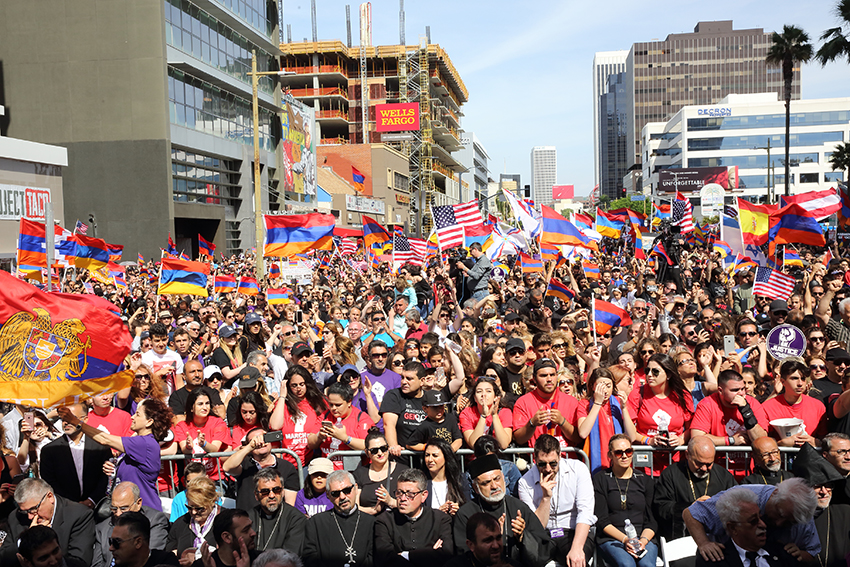YEREVAN — Armenian protest leader Nikol Pashinian has been officially nominated as a candidate for the post of prime minister in the upcoming vote on May 8, after he secured the backing of 41 lawmakers in the 105-seat parliament, a member of the Pashinian-led Yelk faction told RFE/RL on May 3.
Ararat Mirzoian’s statement came amid a pause called by Pashinian on May 2 in the three-week-long demonstrations, after the ruling Republican Party (HHK) indicated that it would support him for prime minister in a May 8 parliamentary vote.
Separately, in a video posted on Facebook, Pashinian said on May 3 that he had a meeting with the head of the parliamentary faction of the HHK, Vahram Baghdasarian, who assured him that the HHK will support him as the “people’s candidate,” reiterating his party’s support for any candidate who secured the backing of one-third of lawmakers.
Pashinian has been antigovernment protests that forced Republican leader and former President Serzh Sarkisian to step down as prime minister just days after he was elected to the position by the parliament.
After calling on May 2 for a halt in protests, Pashinian on May 3 asked all his supporters to come to Yerevan’s Republic Square at 11 a.m. on May 8 — the day the parliament votes again on a prime minister. Until then, he told supporters to stay in touch with him through Facebook, should the political situation change.
Under Armenia’s constitution, if a prime minister is not elected in the second vote on May 8, parliament will be dissolved and early general elections would be held with the HHK-led acting government in charge of the electoral process.
Yelk’s Mirzoian told RFE/RL on May 3 that Pashinian has also received the backing of representatives of the Tsarukyan Alliance, which has 31 seats, and the Armenian Revolutionary Federation (Dashnaktsutyun), which has seven seats.
Pashinian’s Yelk faction has nine seats.
The May 3 pause in the wave of protests came after a dramatic previous day during which crowds Pashinian had called into action blocked nearly every major road in the country, paralyzing traffic and business activity on May 2.
Main highways blocked included the one connecting Yerevan with the country’s main airport and those leading to the Georgian and Iranian borders.
However, passage was allowed for all emergency vehicles and the two strategic highways connecting Armenia with Nagorno-Karabakh were kept open.
Pashinian met with the ambassadors of Russia, the United States, Georgia, and the European Union, and informed them that he is working to settle the country’s political crisis.
“I informed the ambassadors about the agreements which have been reached on resolving the domestic crisis,” he said in a statement on his Facebook page late on May 3.
“Several issues of bilateral relations were discussed as well. Meetings with ambassadors accredited in Armenia will continue,” he said.










